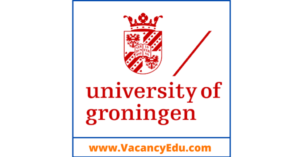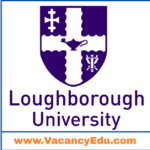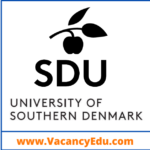University of Groningen, Netherlands invites online Application for number of Fully Funded PhD Degree at various Departments. We are providing a list of Fully Funded PhD Programs available at University of Groningen, Netherlands.
Eligible candidate may Apply as soon as possible.
(01) PhD Degree – Fully Funded
PhD position summary/title: PhD position Chemical Origin of Primordial Cells in the First Ocean (1.0 FTE) (V24.0255)
We invite applications from outstanding candidates, for a PhD position aimed at advancing research on the chemical origins of life on Earth, with a specific focus on our recently funded Protocell Project.
The origin of life on Earth stands as one of the great mysteries of science. Researchers have long concluded that the chemical reactions that allowed life to emerge took place in microscopic compartments, called protocells. However, it is still not known how these protocells were formed. In the context of an NWO-Vici research program, we will explore the possibility that protocells were made of lipids, formed by solar irradiation of a primordial oil layer that covered the ocean. This explorative work will include studies of chemical reactivity, molecular self-assembly and the physico-chemical behavior of plausible lipids (primarily fatty acids).
The results of this research will also apply to an important contemporary issue: the mitigation of environmental damage by treatment and removal of the oil layers that pollute the ocean.
Deadline : 2 September 2024
(02) PhD Degree – Fully Funded
PhD position summary/title: PhD positions on Supramolecular Approaches to Improve RNA Stability (2.0 FTE) (V24.0254)
We are looking for two PhD candidates for a joint project between the groups of Prof. Tibor Kudernac, Prof. Wesley Browne, and Prof. Nathalie Katsonis, that will be carried out within the framework of the Growth Fund initiative “Big Chemistry” (https://bigchemistry.nl/). The program ‘Big Chemistry’ has received over 90 million euros from the National Growth Fund to position the Netherlands as a global leader in chemical robotics combined with artificial intelligence. In this context, it becomes possible to collect large datasets on properties of molecular systems.
The core scientific challenge that will be addressed within this case study is the stability of RNA strands in water. RNA is well-known to be unstable in aqueous solutions, which is why, e.g., RNA vaccines, have to be stored at quite low temperatures. RNA degradation in water at room temperature is primarily driven by intramolecular transesterification, that leads to the cleavage of phosphodiester bonds and fragmentation of the RNA chain. It has been hypothesized that this intermolecular transesterification can occur only in specific conformations.
You will investigate this hypothesis systematically, and you will develop supramolecular strategies to control RNA conformation reversibly. Additionally, you will explore the correlation between RNA conformation and its catalytic properties. Ultimately, the outcomes of this research in chemistry will provide supramolecular solutions to pressing healthcare challenges.
Deadline : 2 September 2024
View All Fully Funded PhD Positions Click Here
(03) PhD Degree – Fully Funded
PhD position summary/title: PhD Supramolecular Mechano-Chemistry in the Early Earth Replication of RNA (1.0 FTE) (V24.0256)
The origin of life on Earth stands as one of the great mysteries of science. We are excited to invite applications from outstanding candidates for a PhD position aimed at advancing research on the chemical origins of life on Earth, with a specific focus on our newly funded Protocell Project.
Researchers generally agree that basic RNA molecules likely appeared before proteins and other nucleic acids, and were thus present at the onset of life on Earth. The prevailing view is thus that life started with basic RNA molecules, enclosed in early cells (known as protocells), and capable of self-replication without assistance from other molecules. Multiple mechanisms have been proposed for this supramolecular replication, with a growing emphasis on those mechanisms that involve autocatalytic feedback. However, one key unknown remains: for multiple copying cycles to work, the template RNA molecule and the newly formed RNA strand have to separate mechanically after the first copy is made, and how this mechanical separation could have happened effectively remains unclear and heavily debated.
Deadline : 2 July 2024
(04) PhD Degree – Fully Funded
PhD position summary/title: PhD position in Artificial Intelligence for Cultural Heritage (V24.0281)
Traditional handwritten text recognition (HTR) approaches ignore the multimodal characteristics of historical manuscripts. Moreover, they underestimate problems at the level of layout analysis, the detection of the logical reading order over a scanned page of text, and the recognition of textual and graphic patterns with a special meaning (headings, illuminated capitals, repetitive administrative forms, tables, and other markers). In order to exploit deep learning in these areas, it is necessary to have ‘humans in the loop’, who not only label characters and words and transcribe lines of text but also train the machine to analyse images in a multifaceted manner. The knowledge harvested in this manner is immediately usable to improve the recognition quality of traditional HTR algorithms.
We are looking for a highly motivated and qualified PhD student/researcher who will work towards developing new (machine learning and deep learning-based) algorithms and procedures that exploit human labelling and machine-based clustering efficiently. Human labelling (from Dutch cultural heritage partners) will address not only text but also other multimodal attributes of scanned text images (layout, graphics). The ultimate goal is to realize AI systems with a deep understanding of what a document is about.
Deadline : 28 June 2024
(05) PhD Degree – Fully Funded
PhD position summary/title: PhD position in Ecology & Conservation of Salt Marshes (1.0 FTE) (V24.0278)
Facing the triple crisis of biodiversity loss, climate change, and pollution, Wadden Sea salt marshes are under increasing pressure. Sustainable management scenarios are urgently needed to strengthen their role for safeguarding the Outstanding Universal Value (OUV) of the Wadden Sea. In this project TRICMA², we combine a well-designed field approach representing ‘biodiversity scenarios’ with field experiments and mesocosms, where climate, biodiversity, and pollution are manipulated. Ecological connectivity is investigated by studying movement patterns and habitat use of birds. TRICMA² includes a strong societal component by including stakeholders from several socio-economic sectors, including nature conservation, coastal protection, agriculture, and tourism. This project is a collaboration between Dutch, German and Danish research institutes, among which: University of Hamburg, University of Munster, Kiel University, Alfred Wegner Institute, University of Groningen and Deltares/Delft University of Technology, and of four well connected Workpackages (WP’s): a) Social-Ecological Learning & Science-Society Interactions (WP1), b) Ecological Networks (WP2), c) Ecological Connectivity (WP3), and d) Ecosystem Functioning. This position belongs to WP2.
The main objective of WP2 is to assess how the triple crisis affects ecological networks in Wadden Sea salt marshes and adjacent habitats. We will use a combination of descriptive and experimental approaches in shared salt marsh sites in all regions (DK, GER-SH, GER-LS, NL). WP2 tasks include: i) determination of community composition of microbes, benthos/soil fauna, plants, birds, ii) assessment of species interactions (spatial species associations microbes-plants), feeding behaviour (benthos/soil fauna-birds; bird faecal sampling (eDNA), iii) assessment of environmental conditions (hydrodynamics, micro-topography, micro-climate, soils, iv) manipulation of single and combined pressures, e.g. flooding frequency (mimicking SLR), pollution (nutrient loads), and increased temperatures to study impacts on networks (benthos/soil fauna, microbes, plants), v) assessing impact of different warming scenarios (1.5°C and 3°C), hydrodynamics and density of non-native Spartina anglica on benthos/soil fauna, microbes, plants, vi) multifactor lab experiments, studying impacts of single and combined pressures on plant / benthic communities, interactions and performance, vii) long-term manipulation management regimes (small & large herbivore grazing/mowing/abandonment) assessing feedbacks between grazing, soil fauna, microbial, and plant communities under different environmental conditions (elevational gradient, affecting flooding frequency).
Deadline : 25 June 2024
Polite Follow-Up Email to Professor : When and How You should Write
Click here to know “How to write a Postdoc Job Application or Email”
(06) PhD Degree – Fully Funded
PhD position summary/title: PhD position “Fiscal federalism and partial fiscal decentralization” (V24.0286)
Since its foundation in 1614, the University of Groningen has enjoyed an international reputation as a dynamic and innovative center of higher education offering high-quality teaching and research. Belonging to the best research universities of Europe and joining forces with prestigious partner universities and networks, the University of Groningen is truly an international place of knowledge.
The Faculty of Economics and Business offers an inspiring study and working environment for students and employees. International accreditation enables the Faculty to assess performance against the highest international standards. It also creates an exciting environment of continuous improvement. FEB’s programmes, academic staff and research do well on various excellence ranking lists.
FEBRI, the graduate school and research institute of the Faculty of Economics and Business has available one PhD position in the field of “Fiscal federalism and partial fiscal decentralization”
Subnational governments (e.g. municipalities and provinces) are increasingly recognized as critical players in addressing the grand challenges of our time, such as climate change and an ageing population. In this PhD position, you will delve into the divide between theoretical ideals and practical realities of the Dutch system in the division of fiscal responsibilities and resources between different levels of government. The textbook fiscal federalism case concerns a federation, where subnational governments enjoy full revenue raising and spending autonomy, with intergovernmental transfers only in case of externalities as well as sufficient mobility ensuring sorting by preferences, resulting in an efficient provision of public goods. In practice, we find that low mobility, limited local autonomy, fiscal equalization, and bailouts result in problems of transparency, accountability, principal-agent relationships, flypaper effects, moral hazard, and more. In this PhD position, you will contribute to bridging that gap between theory and practice through empirical and theoretical research within the Dutch context.
Deadline : 10 June 2024
(07) PhD Degree – Fully Funded
PhD position summary/title: PhD in Multisensory Autonomy for Intelligent Mobile Systems (1.0 FTE) (V24.0259)
Reliable state estimation and perception play imperative roles in reaching high-performance autonomy for intelligent mobile systems. Recent advances in sensor technologies have provided enormous possibilities and challenges ranging from hardware utility to information processing. Meanwhile, intelligent mobile systems have been deployed to extensive application scenarios that are safety- and performance-critical, such as autonomous driving, smart factory/health/agriculture/forestry, etc.
In this PhD project, we investigate novel methodologies for state estimation and perception using multimodal sensors in mobile robotics. Towards agile sensing and inference, a series of original studies will be conducted based on uncertainty-aware kino-dynamic modeling and statistical machine learning. We put equal emphasis on developing universally adaptive theories and sensory-specific methods. Through system-level developments, the theoretic-based contributions will be validated in the real world in a performance-oriented manner. Further, the resulting estimation and perception schemes are anticipated to be coupled with motion planning and locomotion. We allow tailored topics with considerations on the candidate’s research interests and skill sets.
The objective of the temporary position is the production of a number of research articles in peer-reviewed scientific journals and conference proceedings, which together will form the basis of a thesis leading to a PhD degree (Dr) at the University of Groningen.
Deadline : 3 June 2024
(08) PhD Degree – Fully Funded
PhD position summary/title: PhD Embracing neurodiversity: from stigma to organizational asset through management control 1.0 FTE (V24.0276)
Neurodiversity has been increasingly recognized as a valuable asset in the business world. Firms are looking to hire individuals with a broad set of neurodivergent attributes in order to signal more responsible management and to improve performance. This project aims to analyze 1) how the perception of neurodivergent employees has changed over time, 2) how companies adapt processes to increase the neurodiversity of their employees and manage them effectively, and 3) how these changes affect neurodivergent employees. By exploring these themes, the candidate will add to our understanding of how companies account for and manage neurodiversity, and the consequences this has for a wide range of firms.
Deadline : May 31, 2024
Click here to know “How to Write an Effective Cover Letter”
(09) PhD Degree – Fully Funded
PhD position summary/title: PhD Decision Biases in Family Firms Internationalization (1.0 FTE) (V24.0238)
Family firms are vulnerable to many decision biases that deviate their internationalization strategies from rational economic models. One such bias is bifurcation bias, which refers to the asymmetric treatment of family and non-family assets within a firm. Bias can also be triggered by the framing approach (e.g., aggregation rules, gain versus loss framing) that family firms use to evaluate investment outcomes. The project aims to explore how decision biases impact family firms’ internationalization, exploring heterogeneity among family firms and between family and non-family firms.
The PhD position is embedded in the research programme Global Economics and Management of FEB’s Research Institute. The project will be supervised by Prof. Rian Drogendijk, Dr Maria Cristina Sestu, and Dr Lipeng (Gary) Ge.
Deadline : 31 May 2024
About The University of Groningen, Netherlands –Official Website
The University of Groningen is a public research university in the city of Groningen in the Netherlands. The university was founded in 1614 and is the second-oldest university in the Netherlands. In 2014, the university celebrated its 400th anniversary. Currently, RUG is placed in the top 100 universities worldwide according to three international ranking tables.
The university was ranked 65th in the world, according to Academic Ranking of World Universities (ARWU) in 2019. In April 2013, according to the results of the International Student Barometer, the University of Groningen, for the third time in a row, was voted the best university of the Netherlands.
The University of Groningen has eleven faculties, nine graduate schools, 27 research centres and institutes, and more than 175-degree programmes. The university’s alumni and faculty include Johann Bernoulli, Aletta Jacobs, four Nobel Prize winners, nine Spinoza Prize winners, one Stevin Prize winner, royalty, multiple mayors, the first president of the European Central Bank, and a secretary general of NATO.
Disclaimer: We try to ensure that the information we post on VacancyEdu.com is accurate. However, despite our best efforts, some of the content may contain errors. You can trust us, but please conduct your own checks too.
Related Posts
- PhD Degree (34)-Fully Funded at Loughborough University, Leicestershire, England

- PhD Degree (15)-Fully Funded at University of Southern Denmark, Denmark

- PhD Degree (24)-Fully Funded at Forschungszentrum Julich, Germany

- PhD Degree (08)-Fully Funded at Vrije University Amsterdam, Netherlands

- PhD Degree (27)-Fully Funded at Nottingham Trent University (NTU), England

- PhD Degree (24)-Fully Funded at University of Oslo, Norway

- PhD Degree (04)-Fully Funded at Masaryk University, Czech Republic

- PhD Degree (29)-Fully Funded at University of Oslo, Norway

- PhD Degree (13)-Fully Funded at University of Stavanger, Norway










